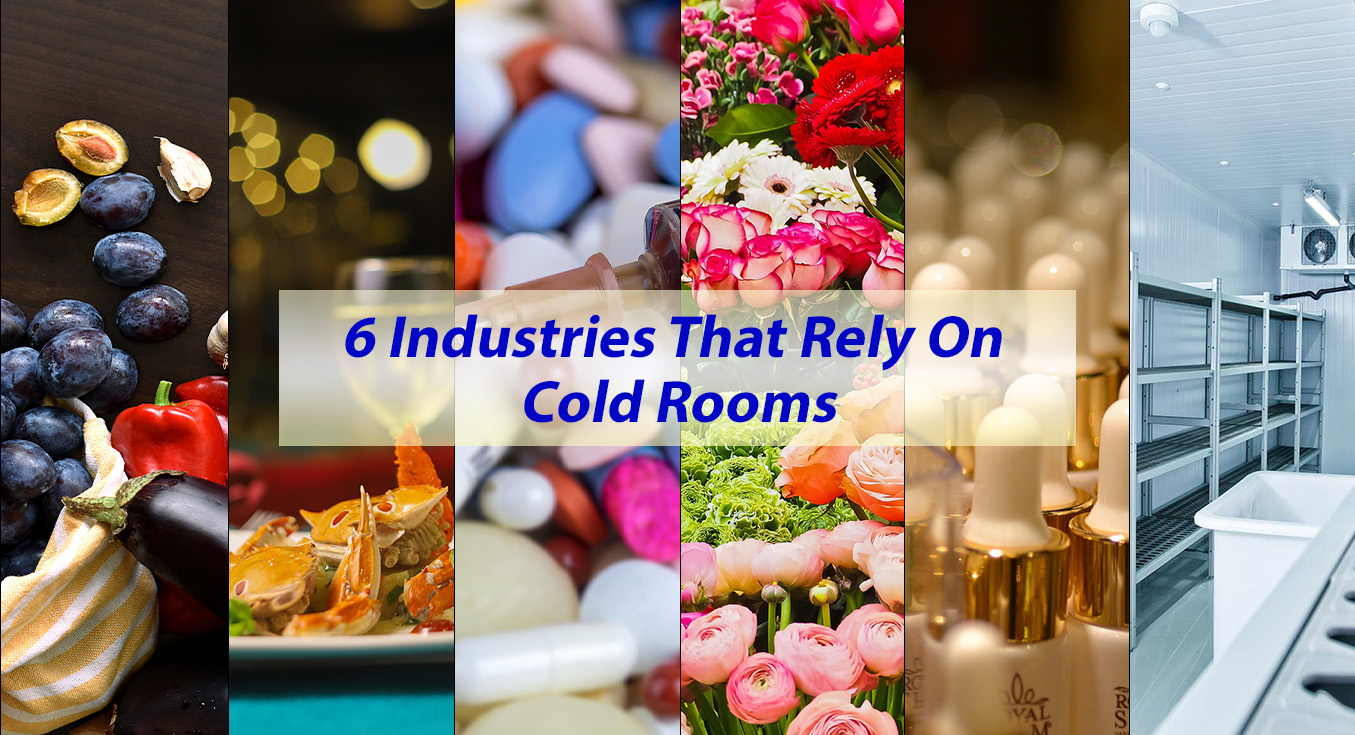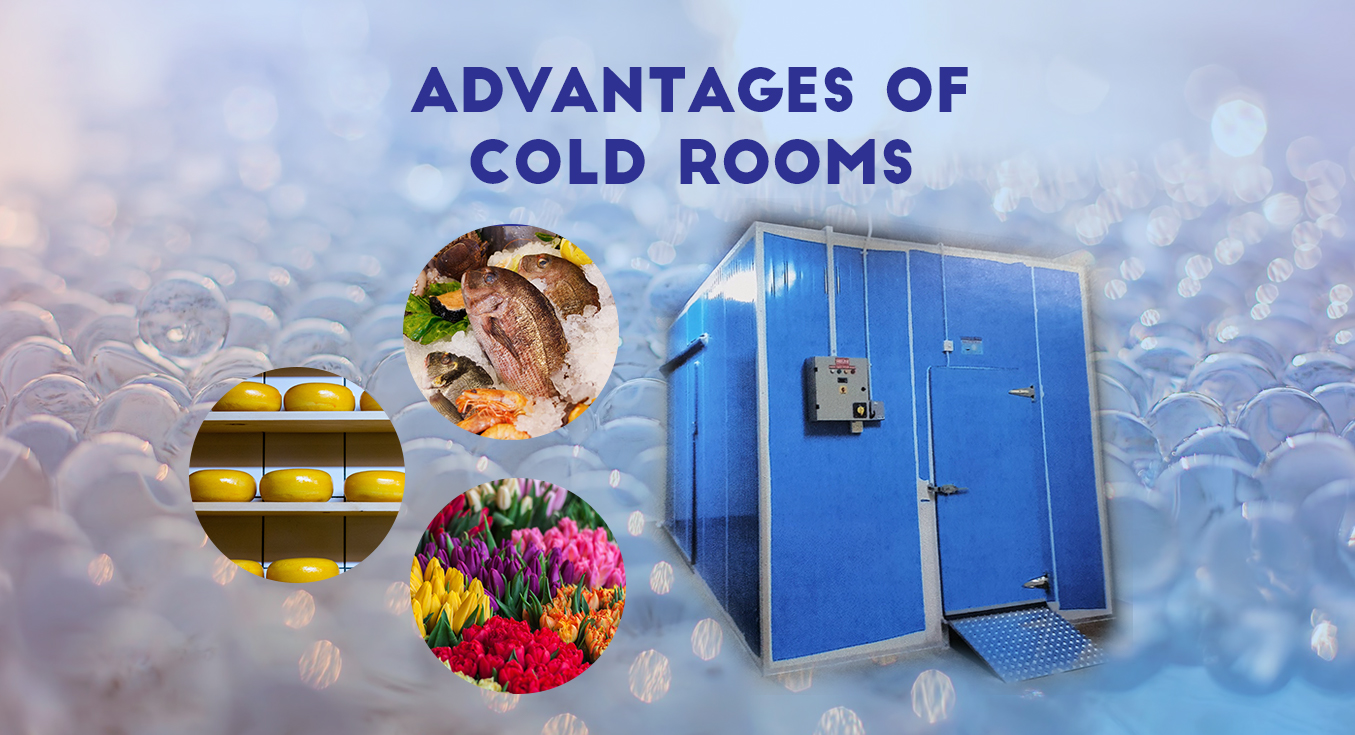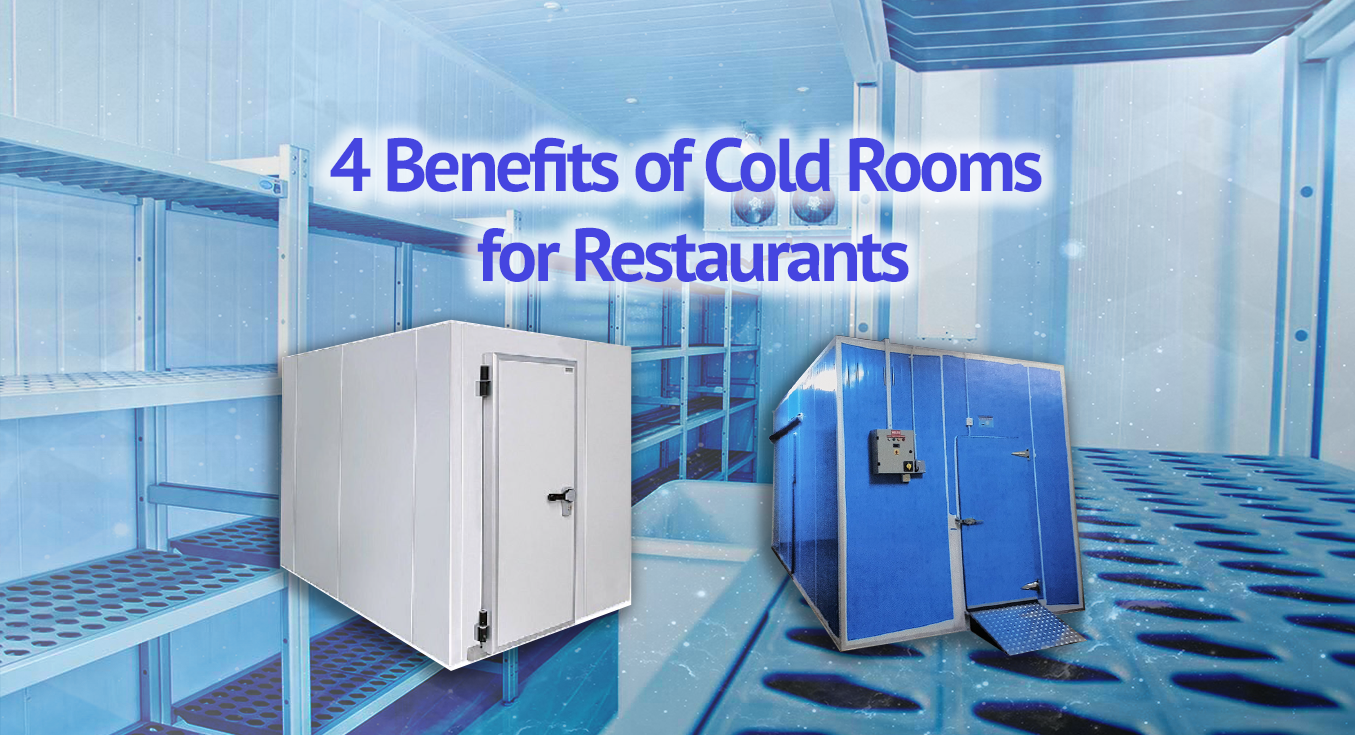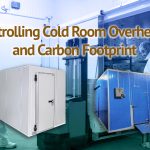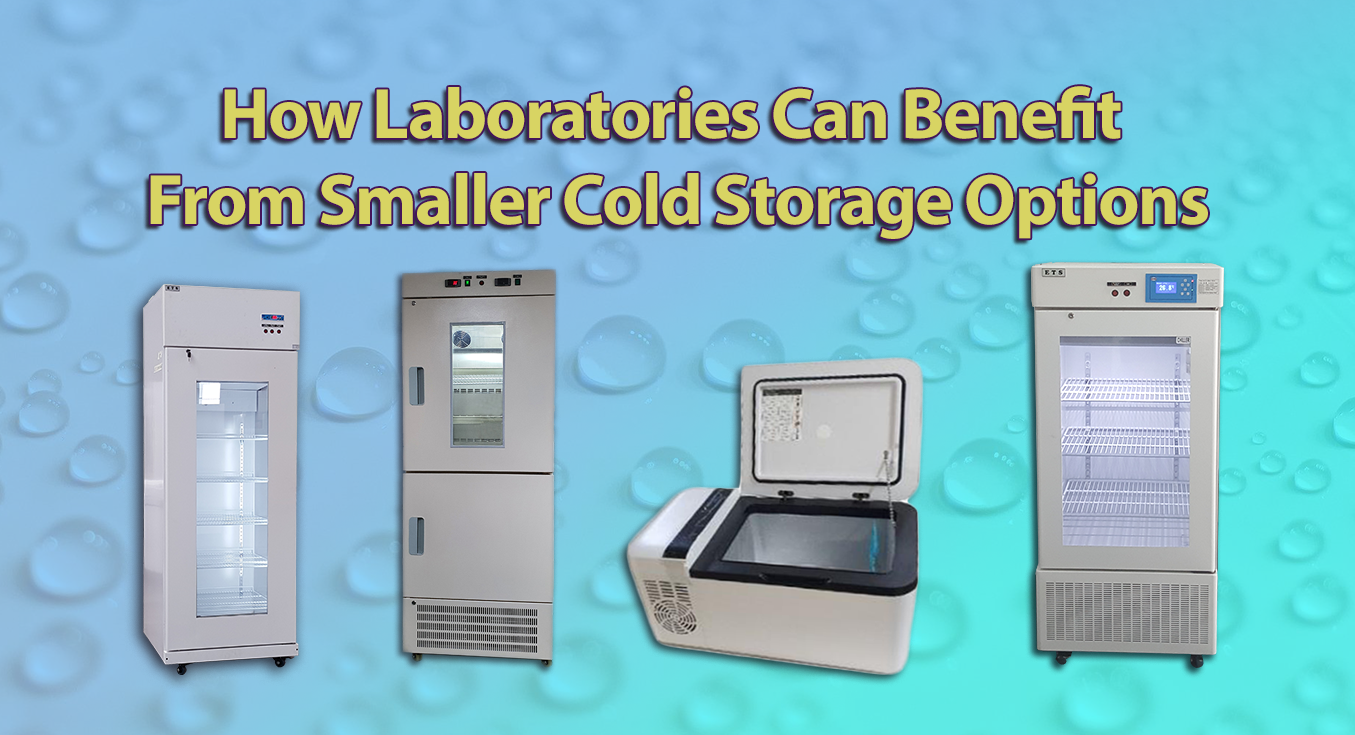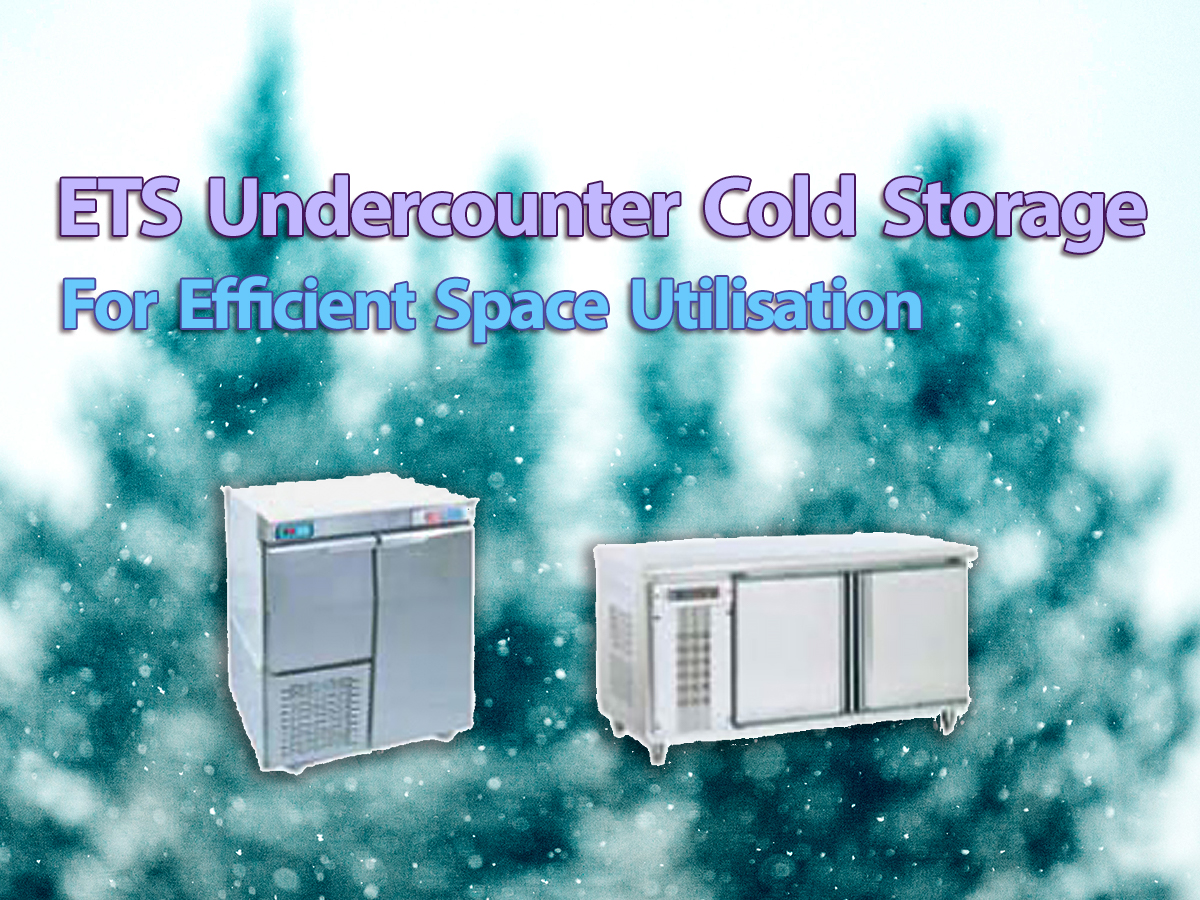When you think of the phrase ‘cold room’, what first comes to mind?
Most people think of restaurants, supermarkets and hotels. These are the areas most often associated with cold rooms where we see employees moving in and out with goods in hand.
Cold rooms are essentially just a larger-scaled refrigerator or freezer. The size of a cold room can vary from very small walk-in rooms to very large warehouse storage. Depending on the kind of storage required, cold rooms can be set to maintain temperatures at above or below freezing.
Cold rooms are primarily used for storing temperature-sensitive, perishable items, so it’s most often used for food items and pharmaceutical products. However, cold rooms can be used across far more industries than you could imagine.
1. Food Industry
The food industry is one of the main purveyors of cold rooms where conditions are designed for storing perishable and unstable food items such as vegetables, fruits, meat, seafood and dairy products from post-harvest all the way to fully processed.
After harvesting, fruits and vegetables naturally continue to respire and mature. Cold storage arrests the decay rate of such items by constant monitoring and regulation of the concentration of various gases released and humidity in the controlled atmosphere room. This ensures an optimum rate of preservation.
With cold rooms, fruits and vegetables that are normally seasonal, can be made available throughout the year.
Additionally, frozen foods which include meat, poultry, seafood, dairy products and other processed foods need to be stored at a maximum of -18°C. This temperature ensures minimal loss of sensory flavours, taste as well as nutrition.
Cold rooms that have been designed for frozen food storage make it possible to extend the shelf-life of different kinds of food products in large quantities before or after it is transported and distributed across long distances.
2. Retail Food Industry
The retail food industry is another heavy user of cold rooms, through commercial establishments such as supermarkets, restaurants, hotel chains and so on. As they deal with raw and processed foods, it is of utmost importance to ensure that their products remain food-safe. This means adhering to required hygiene levels and stringent health and safety regulations.
And since some of these establishments deal with very large quantities of products, they often upscale from industrial refrigerators and freezers to walk-in chillers like cold rooms.
Depending on the food products or ingredients that need to be stored, cold rooms can be customised to different configurations and temperatures as needed.
3. Pharmaceuticals and Healthcare Industry
The pharmaceutical industry demands exacting standards and concise storage environments. The precise temperature control of drugs and medical devices is essential in preventing material corruption and to guarantee usage safety.
Laboratory reagents, dialyzers, disinfectant solutions, sterilants, burn treatment products, and dental restorative materials, are examples of highly temperature sensitive items that require routine and consistent refrigeration to remain viable.
In addition, the storage of organs is a very delicate matter. Organ donation and transplantation can only be done within a strictly controlled environment with stable cold temperatures in order to retain utility of the organ.
The installation of temperature controlled cold rooms at hospitals therefore saves more lives than we know.
4. Floral Industry
The floral industry is no stranger to using cold rooms for storage of cut flowers and prepared bouquets. After all, the main challenge for a florist is to provide fresh flowers to the customers regardless of the occasion.
Flowers must be kept cool from the time of cutting to the moment of delivery. Letting them heat up promotes premature degradation that manifests in discolouration, wilting and leaf loss.
By placing flowers in cold rooms, it reduces deterioration by minimising water loss, respiration rates, sensitivity to ethylene, microbial development and ethylene production. The regulated temperature environment ensures that flower petals remain moist and fresh from one to up to three weeks.
With the proper cold storage, not only can there be less waste, but this also minimizes loss and increases potential sales as the stock of flowers remains fresh enough to be turned into bouquets or other floral decorations.
5. Cosmetics Industry
Cosmetics are made from raw materials that come from nature. Cosmetics ingredients are very sensitive to temperature changes and don’t do well in warm temperatures. Therefore, the requirements for cosmetics storage is as strict as pharmaceuticals or meat in order to ensure a longer shelf life.
To minimise health risks, cosmetics also need to be stored at so-called room temperature as the use of cosmetics that were not stored at controlled temperatures have the potential to cause skin changes.
When cosmetics are overheated, fat is secreted and bacteria multiply which can cause fungal infections. Some cosmetics may also lose their quality due to insufficient humidity and UV radiation.
While smaller retailers or salons are not likely to have a cold room for cosmetic storage, regional distributors that routinely handle large volumes of cosmetics oftentimes store those products in cold rooms until they are shipped out.
6. Technology Industry
The technology industry is a great surprise to many when they find out that it also uses cold rooms. Some types of technology are sensitive to temperature changes or humidity so companies in the tech sector primarily use cold rooms to store things like batteries to photosensitive film.
Under normal conditions, running multiple servers and computers together at the same location would likely result in overheating and the possibility of electrical fires if ambient temperatures were not well-managed. In addition, it’s also possible for excessive humidity to cause short circuits to electronics from condensation.
Therefore, cold rooms can provide a suitable cold and dry environment to run a server farm or other electronics processing facility without the safety implications faced in normal ambient temperatures.
ETS COLD ROOMS
Our Cold Rooms are specifically designed to provide controlled temperature environments for numerous applications which require bigger capacity or space, including packaging of food & beverages or medicines, stability storage, biological research, shelf life testing, and etc.
The cold rooms also come with visual and audible alarm alerts, and their modular construction are designed for fast and easy installation.
Contact us for a quote or to answer any questions you may have.

